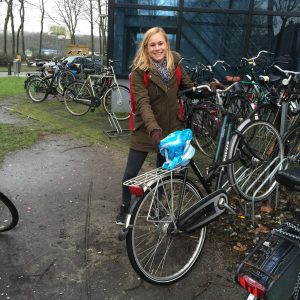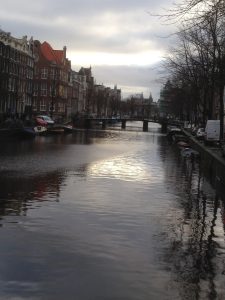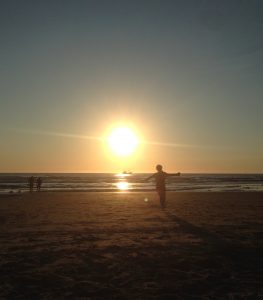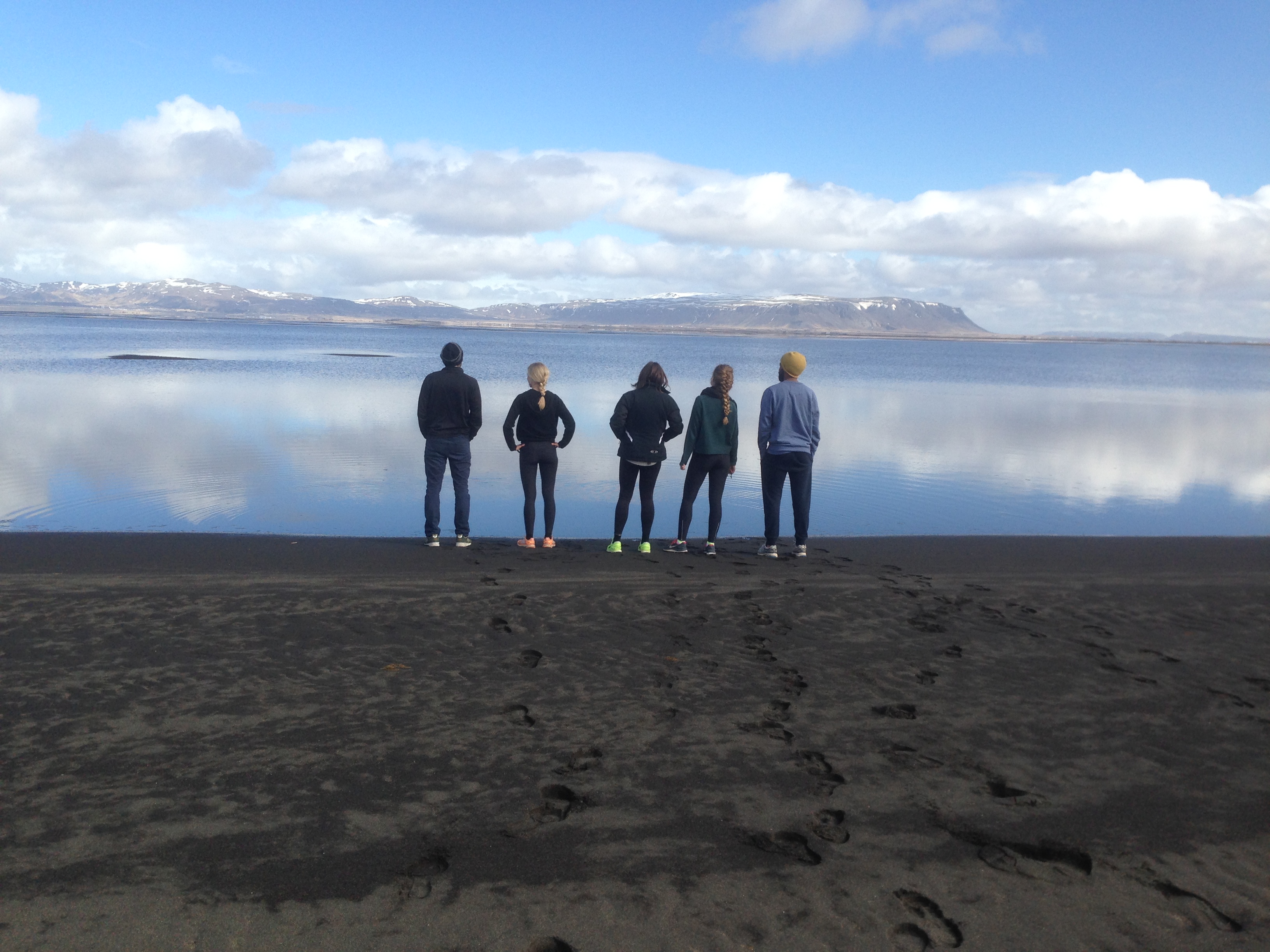Pre-departure:
My last few months in South Africa before leaving for Amsterdam were rather chaotic. On top of trying to see as many friends and family as possible before I left, there seemed to be a constant stream of administration getting in the way of my holiday. If I learned anything here, it’s that you just have to knuckle down and get through this admin, because the more effort you put in here, the smoother your exchange will probably go.
Firstly, when it comes to visa, insurance and housing applications, do it as early as possible! You will be amazed at how easy it is to miss the deadlines if you don’t do the task immediately after receiving the email. Secondly, when it comes to things like insurance, you may not have your exact flight dates when you need to buy it, but rather cover yourself for longer rather than shorter – you can usually claim it back if you have left the country early.
Also, something that completely slipped my mind and which I came to regret, was not dealing with my South African bank account before I left the country. While it is relatively easy (and very worthwhile) to get a Dutch bank account once you are in the Netherlands, it is important to make sure that you can access your South African account fully as well. In my case, it turns out that my monthly withdrawal limit was too low, and the only way to change it was through my South African phone number, which I could no longer access. Make sure that you change your OTP portal to email before you leave, or give a parent written consent to access your accounts.

Another lesson I had to learn the hard way was to look at a map before you choose accommodation! While Amsterdam is the world’s smallest big city, you may still find yourself having to cycle long distances just to get into the canal ring. I lived in Diemen, located South-East of the centre, and while you do get used to the long cycle, you will end up adding on a extra 15-20 minutes of cycling compared to your more fortunate friends who live in a more central area. Of course, on the other hand, rent in Amsterdam is extremely expensive and location is everything. Therefore, choosing a less central location meant that I could pay a similar amount of rent, but could enjoy a room and bathroom to myself. In a nutshell, choosing accommodation as a student in Amsterdam is a tradeoff between location and privacy. Although, at least the long cycles meant I could eat more stroopwafels!
Finally, do not leave your packing until the last minute. Fitting 5 or 6 months worth of possessions into one suitcase can be a tricky business, especially if you are going into the European Winter season! We were advised to roll our clothes in order to maximize bag space, which worked extremely well. Also make sure that you have a smaller bag for travelling within Europe. While the cheaper airlines offer great deals, it’s often very expensive to check in baggage. Therefore, a carry-on size “wheely” bag is probably your best bet.
Experience at Host University:

Having one year of Masters in Economics under my belt, I joined the second semester of UvA’s Masters in Economics programme. What fitted well with this arrangement was that the second semester at UvA for this course is when all of the electives are taught. As all the Masters students had already had their first semester in 2015, in which they had completed all of the core (technical) subjects, I felt confident and that my skills were on par with the local students in the class.
A difference between Stellenbosch and UvA is that UvA splits its semester into three equal blocks, which each consist of approximately six weeks of class, and then two exam weeks. This is a nice arrangement as it gets you to focus on two electives at a time, which you then write off. Unfortunately for me, however, the three subjects I chose ended up all being in the first block! While I did manage to pass everything, the workload was more than I felt I should have given myself in that short space of time.
Unfortunately for this course, the second and third block are set aside for thesis writing and so no electives are taught during this period. This meant that I had no classes for the second two thirds of my exchange. On the one hand, this is most definitely a positive thing as having so much free time allows you to do a lot of travelling through Europe, whilst in the mean time working on your thesis at our leisure. However, on the other hand, too much free time can mean that you tend to spend a lot of money and sometimes can feel bored if your friends still have classes during the week. Working out a thesis schedule and sticking to it is essential here.
My electives were Human Development, Neuroeconomics and Evolution and Behaviour. Human Development was much like Development Economics taught at Stellenbosch, and so this was sometimes a bit boring, however it was great to hear new perspectives. Neuroeconomics is a new field, and is only offered at UvA as far as I understand. It was fascinating and set out in way that really helped me to engage with the work. Finally, Evolution and Behvaiour was essentially a very advanced course in Evolutionary Game Theory. It was by far the most difficult of the three, and the most technical. As the lecturer was the same as for the Masters Microeconomics Game Theory component, he often assumed that we had all taken this course in preparation. This often made it difficult to follow his notes and explanations.
A quick summary of other activities I did while abroad include museums, music concerts and a lot of travelling! Amsterdam has a wide variety of great museums – my favourite was the FOAM (photography) museum. I travelled to Antwerp, Brussels, Berlin, Copenhagen, Prague and Iceland! I also did some travelling within the Netherlands by train. While all of the cities were amazing to experience, Iceland was the most unique. I saw the Northern Lights, swam in the Blue Lagoon and even hiked to a natural hot spring. While it is expensive, it’s definitely worth it!

Returning to Stellenbosch:
I think that returning to South Africa will be a huge adjustment. I have gotten used to the safety of Amsterdam and the independence that it has given me. I will definitely miss being able to just hop on my bike and go wherever I feel like, not having to worry about parking or about drinking and driving when I go out in the evening with friends, or that it may be unsafe to go somewhere alone.
I am also afraid that I have caught the travel bug! Before this experience, I was hesitant to try new things as they always seemed too scary or not worth the effort. What I have learned from being on exchange is that it is almost always worth it to try to experience as many new things as you can, and to keep yourself open to meeting all kinds of people. Being out of my comfort zone has become such a norm for me that I think that I may struggle to adjust to ordinary life back home. However, perhaps what I have learned is that you can find new and interesting things wherever you are in the world – even in your home town.
On a cultural level, living in Holland has taught me a few things about South Africa. Firstly, I have become aware of how spoilt I was as a child, and am as a young adult! While my parents were still driving me to school until I was 18, children here cycle by themselves to school from as young as 6 years old. Also, most of my friends from around the world whom I have met here have had to work in a part time job since they were in High School in order to have spending money. While many of my South African friends did work when they were students, the pressure never felt quite the same as my international friends’ experiences. In general, children seem to be much more independent of their parents in Europe, which I think makes them grow up faster. My lifestyle back home, I have realized, is perhaps too comfortable.
A more positive realization about South Africa is that we are an incredibly warm and nurturing nation compared to many other parts of the world. It took me a long time to adjust to the ‘coldness’ of Northern Europeans. For South Africans, inviting someone from out of town to stay in your home is a normal thing, for Northern Europeans it is uncommon to invite a new person into your space unless you know them extremely well. This is not to say that I found them rude at all. On the contrary, the Dutch in particular are extremely helpful and friendly. It is breaking past this initial friendly barrier that is the challenge, and something that South Africans are not used to doing. I think that the warmth of South Africans is an economic opportunity that is not fully exploited. We are a special ‘brand’ of people!
This exchange has, without a doubt, opened my eyes to the rewards of travelling. It is something that I strongly feel every person should try and do if they are in a position to afford it. Before leaving South Africa, I would have felt very uncomfortable with the idea of living and working, or even travelling a lot outside of South Africa. Now I feel extremely open to any opportunities that come my way. And, more importantly, I feel that I have learned how to pursue my goals and assert my potential contribution to the world, without feeling shy or insecure. You have to put yourself in a position to be able to find opportunity, instead of sitting back and hoping that it will find you.

